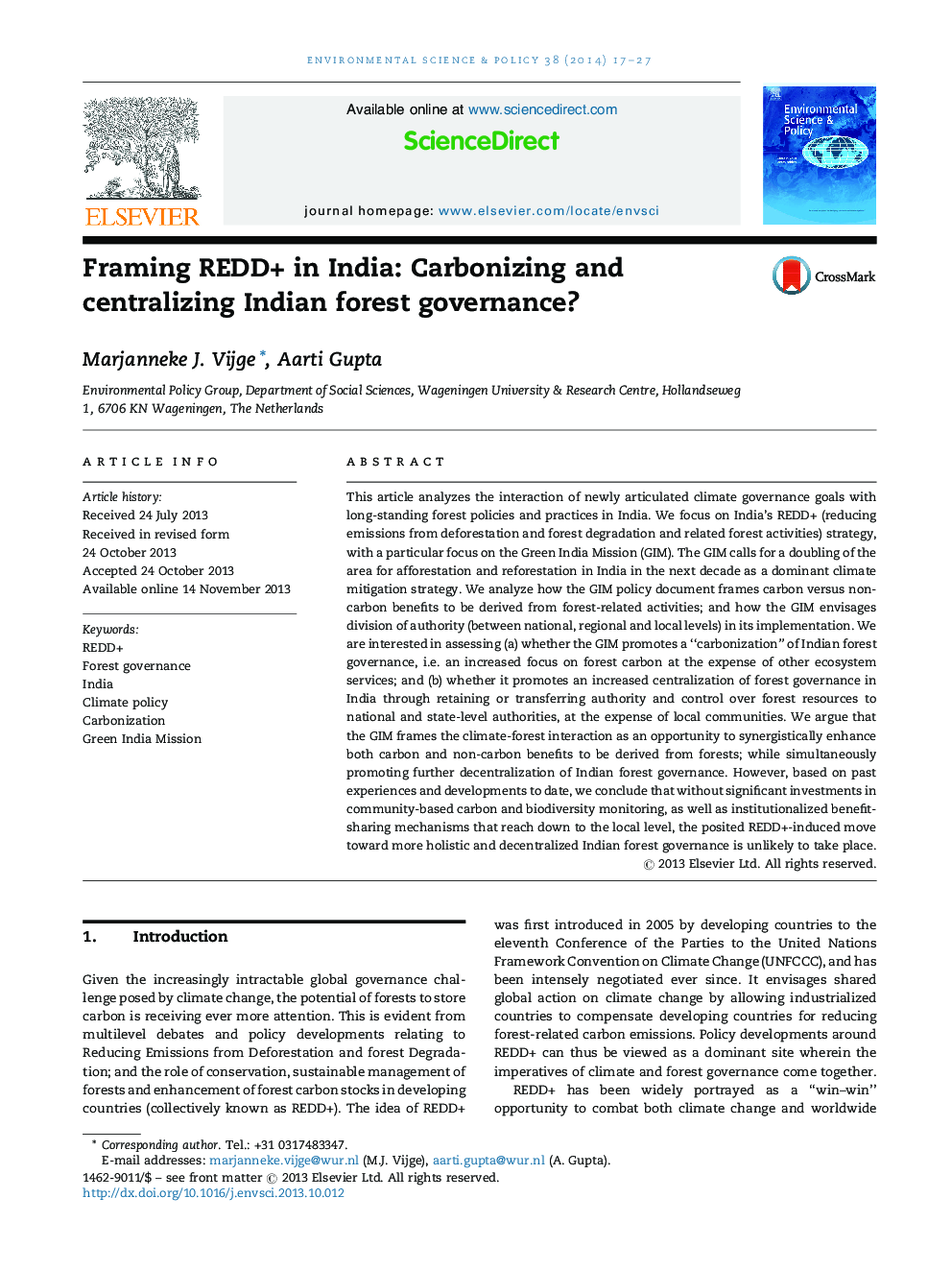| کد مقاله | کد نشریه | سال انتشار | مقاله انگلیسی | نسخه تمام متن |
|---|---|---|---|---|
| 7467912 | 1485068 | 2014 | 11 صفحه PDF | دانلود رایگان |
عنوان انگلیسی مقاله ISI
Framing REDD+ in India: Carbonizing and centralizing Indian forest governance?
دانلود مقاله + سفارش ترجمه
دانلود مقاله ISI انگلیسی
رایگان برای ایرانیان
کلمات کلیدی
موضوعات مرتبط
مهندسی و علوم پایه
مهندسی انرژی
انرژی های تجدید پذیر، توسعه پایدار و محیط زیست
پیش نمایش صفحه اول مقاله

چکیده انگلیسی
This article analyzes the interaction of newly articulated climate governance goals with long-standing forest policies and practices in India. We focus on India's REDD+ (reducing emissions from deforestation and forest degradation and related forest activities) strategy, with a particular focus on the Green India Mission (GIM). The GIM calls for a doubling of the area for afforestation and reforestation in India in the next decade as a dominant climate mitigation strategy. We analyze how the GIM policy document frames carbon versus non-carbon benefits to be derived from forest-related activities; and how the GIM envisages division of authority (between national, regional and local levels) in its implementation. We are interested in assessing (a) whether the GIM promotes a “carbonization” of Indian forest governance, i.e. an increased focus on forest carbon at the expense of other ecosystem services; and (b) whether it promotes an increased centralization of forest governance in India through retaining or transferring authority and control over forest resources to national and state-level authorities, at the expense of local communities. We argue that the GIM frames the climate-forest interaction as an opportunity to synergistically enhance both carbon and non-carbon benefits to be derived from forests; while simultaneously promoting further decentralization of Indian forest governance. However, based on past experiences and developments to date, we conclude that without significant investments in community-based carbon and biodiversity monitoring, as well as institutionalized benefit-sharing mechanisms that reach down to the local level, the posited REDD+-induced move toward more holistic and decentralized Indian forest governance is unlikely to take place.
ناشر
Database: Elsevier - ScienceDirect (ساینس دایرکت)
Journal: Environmental Science & Policy - Volume 38, April 2014, Pages 17-27
Journal: Environmental Science & Policy - Volume 38, April 2014, Pages 17-27
نویسندگان
Marjanneke J. Vijge, Aarti Gupta,